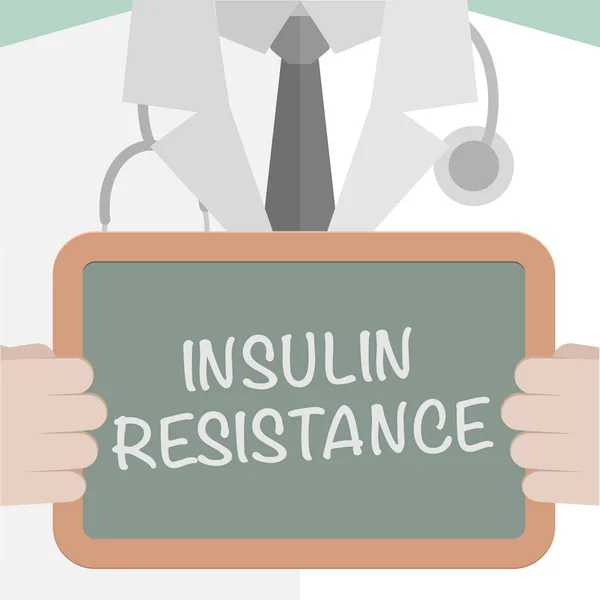Living with insulin resistance can be challenging, requiring a multifaceted approach that combines medication and lifestyle changes. Whether you’re newly diagnosed or seeking more information, this blog aims to provide a comprehensive guide to insulin-resistant medications and practical strategies to manage this condition effectively. From understanding the basics of insulin resistance to exploring the various insulin resistance medications available, we’ll delve into the intricacies of maintaining a healthy lifestyle to support your overall well-being.
Contents
Can Medication Reverse Insulin Resistance?
 Medications play a crucial role in managing insulin resistance. But it’s essential to understand that they typically aim to improve insulin sensitivity rather than outright reversing the condition. One of the most commonly prescribed medications for insulin resistance is metformin. This works by reducing glucose production in the liver and enhancing insulin’s effectiveness in peripheral tissues. Metformin can help lower blood sugar levels and improve insulin sensitivity, making it a cornerstone in the treatment of insulin resistance.
Medications play a crucial role in managing insulin resistance. But it’s essential to understand that they typically aim to improve insulin sensitivity rather than outright reversing the condition. One of the most commonly prescribed medications for insulin resistance is metformin. This works by reducing glucose production in the liver and enhancing insulin’s effectiveness in peripheral tissues. Metformin can help lower blood sugar levels and improve insulin sensitivity, making it a cornerstone in the treatment of insulin resistance.
While metformin and other medications can be effective in controlling symptoms and preventing complications associated with insulin resistance, a comprehensive approach that includes lifestyle changes remains key. In some cases, sustained lifestyle modifications have been shown to improve insulin sensitivity. And, in turn, may contribute to a partial reversal of insulin resistance. However, the degree of reversibility varies among individuals, and a complete reversal may not be achievable for everyone.
Combining medication with a proactive commitment to a healthy lifestyle can yield the most significant benefits. And, allowing individuals with insulin resistance to manage the condition effectively and enhance their overall well-being. Regular monitoring, consultation with healthcare professionals, and ongoing adjustments to the treatment plan are essential components of a successful strategy for addressing insulin resistance.
What Are The Best Insulin Resistance Medications?
The choice of insulin-resistance medications depends on various factors, including the severity of the condition, individual health considerations, and the presence of other health conditions. Here are some commonly prescribed insulin-resistance medications that are considered effective:
Metformin
Metformin is widely considered the first-line medication for insulin resistance due to its well-established efficacy and safety profile. Its primary mechanism of action involves reducing glucose production in the liver, which helps lower overall blood sugar levels. Additionally, metformin improves the body’s responsiveness to insulin. This makes it a valuable tool in managing insulin resistance. Beyond its glucose-lowering effects, metformin is associated with benefits such as weight management and improved lipid profiles. This medication is often prescribed early in the treatment of insulin resistance and is suitable for a broad range of individuals, including those with prediabetes.
Thiazolidinediones (TZDs)
Thiazolidinediones, including medications like Rosiglitazone and Pioglitazone, are insulin sensitizers that target peripheral tissues such as muscle and fat. By enhancing insulin sensitivity, TZDs contribute to better blood sugar control. However, it’s important to note that these medications may be associated with side effects, including weight gain and fluid retention. Therefore, their use is often carefully considered based on individual health conditions. TZDs can be effective. Especially in cases where metformin alone may not provide sufficient control, but their prescription requires a thorough assessment of potential risks and benefits.
GLP-1 Receptor Agonists
GLP-1 receptor agonists, like Exenatide and Liraglutide, are injectable medications that mimic the effects of the natural incretin hormone GLP-1. These medications stimulate insulin release, reduce glucagon secretion, and slow down gastric emptying, collectively contributing to improved blood sugar control. In addition to their glucose-lowering effects, GLP-1 agonists are known for promoting weight loss, making them especially beneficial for individuals with insulin resistance who struggle with excess weight. Some GLP-1 agonists have also demonstrated cardiovascular benefits.
SGLT-2 Inhibitors
Sodium-glucose co-transporter-2 (SGLT-2) inhibitors, including Canagliflozin and Dapagliflozin, work by reducing glucose reabsorption in the kidneys, leading to increased glucose excretion in urine. This unique mechanism of action not only lowers blood sugar levels but also has positive effects on cardiovascular and renal health. SGLT-2 inhibitors are often considered in the treatment of insulin resistance, particularly in individuals with type 2 diabetes, and they may be prescribed as standalone medications or in combination with other agents. It’s crucial to monitor kidney function regularly when using SGLT-2 inhibitors, as they can affect renal health.
Insulin
 Insulin therapy becomes necessary when insulin resistance progresses to a point where the body cannot produce enough insulin to maintain normal blood sugar levels. Short-acting (Regular), Intermediate-acting (NPH), and Long-acting (Glargine, Detemir) insulins are available to address various needs. Insulin is administered via injection and aims to replace or supplement the body’s natural insulin production. This approach is particularly crucial for individuals with severe insulin resistance or advanced diabetes. Insulin therapy is personalized based on factors such as the individual’s lifestyle, blood sugar patterns, and overall health.
Insulin therapy becomes necessary when insulin resistance progresses to a point where the body cannot produce enough insulin to maintain normal blood sugar levels. Short-acting (Regular), Intermediate-acting (NPH), and Long-acting (Glargine, Detemir) insulins are available to address various needs. Insulin is administered via injection and aims to replace or supplement the body’s natural insulin production. This approach is particularly crucial for individuals with severe insulin resistance or advanced diabetes. Insulin therapy is personalized based on factors such as the individual’s lifestyle, blood sugar patterns, and overall health.
It’s crucial to note that the choice of medication should be made in consultation with a healthcare professional. They can assess individual health factors and tailor the treatment plan accordingly. Lifestyle changes, including a healthy diet and regular exercise, are often recommended alongside medication for optimal management of insulin resistance.
How Can I Permanently Reverse Insulin Resistance?
Reversing insulin resistance is often a multifaceted process that involves lifestyle changes and, in some cases, medical interventions. It’s important to note that while the term “permanent” is commonly used, achieving and maintaining improvements in insulin sensitivity typically requires ongoing effort and commitment. Here are some strategies that may help in the process:
Healthy Diet
Adopting a balanced and nutritious diet is fundamental in managing insulin resistance. Focus on whole foods, including plenty of vegetables, fruits, lean proteins, and whole grains. Minimize the intake of processed foods, refined carbohydrates, and added sugars, as these can contribute to insulin resistance.
Regular Physical Activity
Engage in regular exercise, including both aerobic activities (such as walking, jogging, or cycling) and strength training. Exercise helps improve insulin sensitivity by promoting glucose uptake into cells and supporting overall metabolic health. Aim for at least 150 minutes of moderate-intensity exercise per week.
Weight Management
Maintaining a healthy weight is crucial for managing insulin resistance. Even modest weight loss can have significant benefits. Focus on gradual, sustainable weight loss through a combination of a healthy diet and regular exercise.
Hydration
Staying adequately hydrated is essential for overall health, including metabolic function. Water helps in various bodily processes, including the regulation of blood sugar levels. Aim to drink plenty of water throughout the day.
Adequate Sleep
Prioritize good sleep hygiene. Lack of sleep or poor sleep quality can negatively impact insulin sensitivity. Aim for 7-9 hours of quality sleep per night.
Stress Management
Chronic stress can contribute to insulin resistance. Practice stress-reduction techniques such as mindfulness, meditation, deep breathing exercises, or activities you find relaxing to help manage stress levels.
Limit Alcohol Consumption
Moderate alcohol consumption is generally considered acceptable, but excessive alcohol intake can contribute to insulin resistance. Limit alcohol consumption to moderate levels or avoid it altogether, depending on individual health circumstances.
Regular Monitoring
 Regularly monitor blood sugar levels, and work closely with healthcare professionals to adjust treatment plans as needed. Regular check-ups and blood tests are essential for tracking progress and making necessary adjustments.
Regularly monitor blood sugar levels, and work closely with healthcare professionals to adjust treatment plans as needed. Regular check-ups and blood tests are essential for tracking progress and making necessary adjustments.
It’s important to recognize that the effectiveness of these strategies can vary among individuals, and what works for one person may not work the same way for another. A personalized approach, guided by healthcare professionals, is crucial for managing and potentially improving insulin resistance over the long term.
What Are Some Side Effects Of Insulin Resistance Medications?
 While insulin-resistance medications for individuals can have specific side effects, there are some common themes among various classes of these medications. It’s important to note that not everyone will experience these side effects, and the severity can vary. Here are some general considerations:
While insulin-resistance medications for individuals can have specific side effects, there are some common themes among various classes of these medications. It’s important to note that not everyone will experience these side effects, and the severity can vary. Here are some general considerations:
- Gastrointestinal Issues
Many insulin-resistance medications, particularly metformin, can cause gastrointestinal side effects such as nausea, diarrhea, and abdominal discomfort. These symptoms often improve over time or can be managed by taking the medication with food.
- Weight Changes
Some medications, such as thiazolidinediones, may be associated with weight gain, while others, like GLP-1 receptor agonists, can contribute to weight loss. Understanding the potential impact on weight is essential for managing expectations and adjusting lifestyle factors accordingly.
- Hypoglycemia
Certain medications, especially those that stimulate insulin release (insulin, sulfonylureas, and GLP-1 receptor agonists), may increase the risk of hypoglycemia (low blood sugar). This can lead to symptoms such as shakiness, sweating, confusion, and, in severe cases, loss of consciousness.
- Fluid Retention and Edema
Thiazolidinediones may cause fluid retention and edema, leading to swelling in the ankles and legs. It’s important to report any significant changes in weight or signs of fluid retention to your healthcare provider.
- Genitourinary Infections
Some medications, particularly SGLT-2 inhibitors, may increase the risk of urinary tract and genital infections. Pay attention to any symptoms such as increased urination, pain during urination, or genital itching, and consult your healthcare provider if these occur.
- Liver Enzyme Abnormalities
Thiazolidinediones can, in some cases, lead to elevated liver enzymes. Regular monitoring of liver function is typically recommended during treatment with these medications.
It’s crucial to communicate openly with your healthcare provider about any side effects or concerns you may have while taking insulin-resistant medications. They can guide managing side effects, and adjusting your treatment plan if necessary.
Conclusion
In conclusion, insulin-resistance medications involve a comprehensive approach that combines medication and lifestyle changes. Medications like metformin, thiazolidinediones, GLP-1 receptor agonists, and SGLT-2 inhibitors play crucial roles in improving insulin sensitivity and blood sugar control. However, their effectiveness is maximized when coupled with healthy lifestyle choices, including a balanced diet, regular exercise, and stress management. While complete reversal of insulin resistance may not be guaranteed for everyone, these strategies empower individuals to lead healthier lives and effectively manage their condition.
Regular communication with healthcare professionals, monitoring blood sugar levels, and making sustainable lifestyle changes form the foundation for successful insulin resistance management. Embracing this holistic approach allows individuals to take control of their health and work towards achieving the best possible outcomes.
Do you want to get rid of diabetes? Join our online diabetes treatment program and reverse Diabetes naturally through lifestyle changes such as a Personalized Diet plan, Exercise, Yoga, dieticians, and health coaches.

